Right to Work Wisconsin Welcomes Business Investments!
Three businesses investing in Right to Work Wisconsin include Pierce Manufacturing, Exact Sciences, and Carnivore Meat Company.

Three businesses investing in Right to Work Wisconsin include Pierce Manufacturing, Exact Sciences, and Carnivore Meat Company.
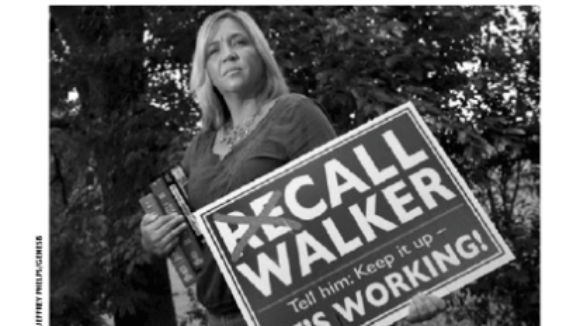
Government Union Czars Intend to Squelch Right to Work Momentum (source: October 2014 National Right to Work Committee Newsletter) It was 55 years ago last month that Wisconsin Democratic Gov. Gaylord Nelson,…
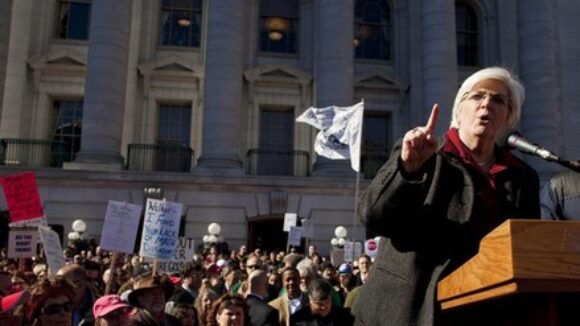
WI Teacher Union Losing Its Teacher Healthcare Monopoly Big Labor will spend millions trying to remove Wisconsin Gov. Scott Walker from office but facts about the local economy and the finances of state government is making the argument for removal much more difficult. As the Wall Street Journal notes, Walker's reforms are working -- saving taxpayers money and putting people back to work: It's not turning out that way: The Apocalypse has not arrived for services, and Mr. Walker was able to balance the state budget without new taxes or looming deficits. They swore revenge for his offenses, and last week Wisconsin Democrats delivered what they say are a million signatures for the recall of Republican Governor Scott Walker... to campaign against reforms that have already saved taxpayers tens of millions of dollars and rescued the state from a budget crisis. Game on. Since last summer, Big Labor waged and lost a bitter fight over the election of a state Supreme Court Justice and spent millions trying to recall Republican state senators. Last year state senator Spencer Coggs called Mr. Walker's plan "legalized slavery" while others predicted disaster for school districts and public services. In districts like Wauwatosa, Racine, LaCrosse and Eau Claire, the changes in health and pension contributions prevented layoffs that were expected to be widespread and in some cases allowed the boards not to fire a single teacher.

WI Teacher Union Losing Its Teacher Healthcare Monopoly Big Labor will spend millions trying to remove Wisconsin Gov. Scott Walker from office but facts about the local economy and the finances of state government is making the argument for removal much more difficult. As the Wall Street Journal notes, Walker's reforms are working -- saving taxpayers money and putting people back to work: It's not turning out that way: The Apocalypse has not arrived for services, and Mr. Walker was able to balance the state budget without new taxes or looming deficits. They swore revenge for his offenses, and last week Wisconsin Democrats delivered what they say are a million signatures for the recall of Republican Governor Scott Walker... to campaign against reforms that have already saved taxpayers tens of millions of dollars and rescued the state from a budget crisis. Game on. Since last summer, Big Labor waged and lost a bitter fight over the election of a state Supreme Court Justice and spent millions trying to recall Republican state senators. Last year state senator Spencer Coggs called Mr. Walker's plan "legalized slavery" while others predicted disaster for school districts and public services. In districts like Wauwatosa, Racine, LaCrosse and Eau Claire, the changes in health and pension contributions prevented layoffs that were expected to be widespread and in some cases allowed the boards not to fire a single teacher.
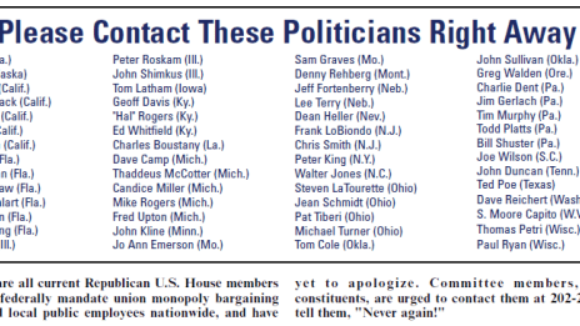
(Source: March 2011 NRTWC Newsletter) Time For Politicians in Both Parties to Own Up to Their Mistakes In late February, many concerned Americans in other states were paying close attention to the fierce, and still unresolved, battle over public-sector union monopoly bargaining in Wisconsin. Many observing the Madison showdown from their homes inwere undoubtedly amazed by what they saw. These five states, like roughly a dozen others, have no statutes on the books empowering government union officials to act as state and local public employees' monopoly-bargaining agents. When elected officials in such states make a judgment that a reform in public-employee compensation packages and work rules is necessary and can be prudently implemented to give taxpayers a better return on their money, they have the power to proceed. It is then up to the voting public to judge whether the reform was a good idea or not. In Wisconsin, however, like in other states which statutorily mandate union monopoly bargaining over public employee pay, benefits, and working conditions, elected officials from the governor on down have far less control over the roughly 50% of public expenditures that go into employee compensation. In the Badger State, half of state and local government employees are unionized. Elected officials and their appointees cannot make any significant changes in the way these employees are compensated or in how they are instructed to do their jobs without government union bosses' approval. Today, millions of Americans whose state and local governments operate free from Big Labor constraints appreciate, after watching the bitter struggle in Wisconsin unfold, better than ever before the importance of keeping union monopolists out of the government workplace. Only Intense Right to Work Lobbying Blocked Monopoly-Bargaining Bill What most freedom-loving Virginians, North Carolinians and Texans probably don't realize is that, just last year, the U.S. Congress came within a hair of taking away their prerogative to decide how their state and local government workplaces are run. At the outset of the 2009-2010 Congress, the votes were there to pass the so-called "Public Safety Employer-Employee Cooperation Act" in both the House and the Senate. Furthermore, President Obama was publicly vowing to sign this legislation as soon as it reached his desk. This measure, more accurately labeled the "Police/Fire Monopoly-Bargaining Bill," would have foisted Wisconsin-style labor relations on state and local public-safety departments in all 50 states.
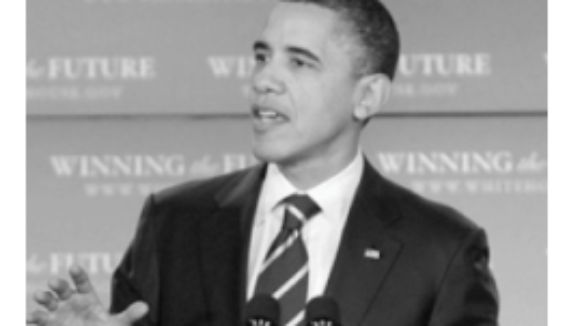
(Source: March 2011 NRTWC Newsletter) Labels Proposed Rollback of Union Monopoly Powers As an 'Assault' As the cover story of this Right to Work Newsletter edition reports, last month Wisconsin teacher union bosses encouraged educators in Madison, Milwaukee, and other school districts to strike illegally in order to participate in protests against GOP Gov. Scott Walker's monopoly-bargaining rollback proposal. Most teachers rejected union bosses' exhortations and reported for their jobs. However, the number of teachers who heeded the siren call of union militancy was sufficient to force multiple school districts, including Milwaukee's, to cancel classes. Madison's schools were closed for a total of four days. Many of the striking union militants, convinced that they should be paid for protesting rather than carrying out their assigned duties, collected phony "sick notes" from pro-forced unionism doctors. Wisconsin taxpayers may have to furnish these outlaw teachers with up to $6 million in "sick pay" for work they were perfectly capable of performing, but chose not to. Wisconsites quoted in media reports, including some who are normally sympathetic to Big Labor, are outraged by the actions of a relatively small share of Badger State teachers (in Milwaukee, for example, just a few more than 600 out of 5,400 teachers joined in the union-instigated "sickout"). Former Union Czar Andy Stern: President's Statement 'Helped Enormously' Even as they were losing the good will of the people of Wisconsin, however, teacher union zealots and thousands of other government union radicals who joined in their wildcat strikes got a "thumbs up" from the White House. On February 17, the second day of illegal teacher strikes, President Obama took the extraordinary step of inviting a reporter and camera crew from a Milwaukee TV station to sit down with him at the White House for an interview. Mr. Obama suggested he was okay with the portions of Gov. Walker's reform package that authorize public agencies to divert a significantly higher share of employees' wages and salaries into their health care and pension plans, and thus reduce taxpayers' total compensation liabilities. At the same time, the President blasted the provision that would, for the first time in decades, restore for most Wisconsin public employees the Right to Work without being fired for refusal to pay dues or fees to an unwanted union.
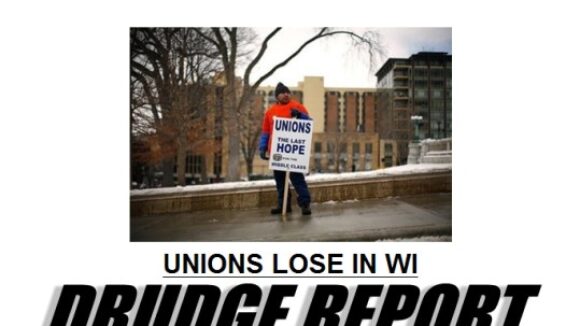
Sign-up to have The National Right to Work Committee® conveniently e-mail you a daily summary of new posts Employees & Taxpayers Win! The Wisconsin Democrat Senators known as the “fleebaggers” were unable to stop freedom for Wisconsin public…

Sign-up to have The National Right to Work Committee® conveniently e-mail you a daily summary of new posts Employees & Taxpayers Win! The Wisconsin Democrat Senators known as the “fleebaggers” were unable to stop freedom for Wisconsin public…
The Wall Street Journal's view of Big Labor's effort to shut down Wisconsin to prevent reform: For Americans who don't think the welfare state riots of France or Greece can happen here, we recommend a look at the union and Democratic Party spectacle now unfolding in Wisconsin. Over the past few days, thousands have swarmed the state capital and airwaves to intimidate lawmakers and disrupt Governor Scott Walker's plan to level the playing field between taxpayers and government unions. Mr. Walker's very modest proposal would take away the ability of most government employees to collectively bargain for benefits. They could still bargain for higher wages, but future wage increases would be capped at the federal Consumer Price Index, unless otherwise specified by a voter referendum. The bill would also require union members to contribute 5.8% of salary toward their pensions and chip in 12.6% of the cost of their health insurance premiums. If those numbers don't sound outrageous, you probably work in the private economy. The comparable nationwide employee health-care contribution is 20% for private industry, according to the Bureau of Labor Statistics. The average employee contribution from take-home pay for retirement was 7.5% in 2009, according to the Employee Benefits Research Institute. Mr. Walker says he has no choice but to make these changes because unions refuse to negotiate any compensation changes, which is similar to the experience Chris Christie had upon taking office in New Jersey. Wisconsin is running a $137 million deficit this year and anticipates coming up another $3.6 billion short in the next two-year budget. Governor Walker's office estimates the proposals would save the state $300 million over the next two years, and the alternative would be to lay off 5,500 public employees. None of this is deterring the crowds in Madison, aka Mad Town, where protesters, including many from the 98,000-member teachers union, have gone Greek. Madison's school district had to close Thursday when 40% of its teachers called in sick. So much for the claim that this is "all about the children." By the way, these are some of the same teachers who sued the Milwaukee school board last August to get Viagra coverage restored to their health-care plan.